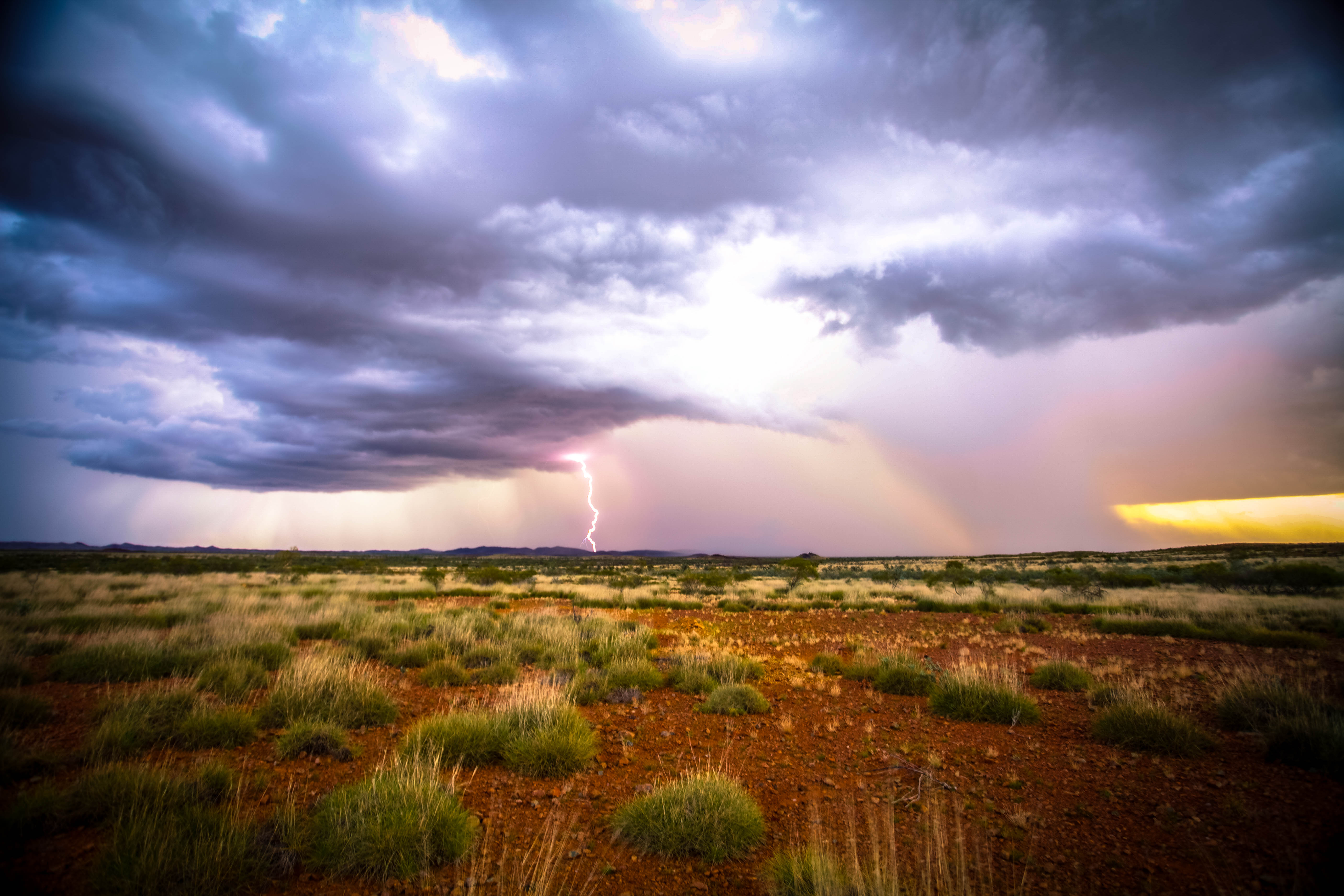Photograph by Tyson Mowarin
Before we complete the Flowers and Leaves of our trees, we’re going to think about the Storms that might mess up our Trees. What are the Storms that get in the way of us being Solid Families?
Our Trees can get stronger or they can become weaker. In the bush, droughts, cyclones or fires can destroy or weaken the trees, but in good conditions they regrow. In our lives there are also things that can strengthen or weaken our families and our children. The Storms in our lives can weaken us. Some of the ‘Storms’ may need to be tackled at a community or Shire Council level. Other things that weaken families happen in our homes between people and we need to work on them together. Sometimes it’s even what we say to ourselves, the put-downs we give to ourselves, that makes us weaker.
What is happening in our community?
Let’s talk about the things that can happen in communities, homes and families that mess up lives and that stop us having strong solid families. At this point, discuss in small groups first, and then in the big group, the things that happen in our communities and families that can interfere with families being strong, or growing stronger.
Make a list of the Storms in your community/town/families.
Discussion:
• Are there some ‘Storms’ on this list that would be difficult to change without support and action at an agency, Shire council or government level?
• What could be done so they learn about your concerns? This could involve supporting or joining other groups, having a meeting with broader community, writing letters, protesting. While preliminary planning can occur at this point, other times may need to be set up to plan and undertake ongoing action.
• Now let’s look at the Storms on our list that we can work on by ourselves or in our families. These are ‘Storms’ over which we can have a bit more control. Issues commonly named have included drinking, drugs, ‘cards’, our response to, or use of, violence.
Storms we can face
There are many different ways that we can support groups to talk about the difficulties/Storms that families are facing. A number of activities are included in Appendix C to support and extend this discussion. We suggest using as many different activities as the group needs. We don’t include notes from these discussions about Storms on the Group Tree or on the Personal Trees. We return to the Trees after these discussions and record actions we can take against the storms.
At a minimum, it is important to talk about:
• How do these Storms affect families and children?
• What do they do to our Trees?
• What can we use from our Trees that will help us take a stand and help us to keep going when life is tough?
• Do you know anyone who has taken a stand against ___?
• How did they do that? Or if personal, how did you know there was another way?
To assist others to take action, discuss in as much detail as possible, the actions that were involved in taking the stand. You could make a record of the stories as a future resource for individuals or the community. Check with the owners of the stories before inclusion. Also check whether they want names changed or omitted.
Talking about a particular ‘Storm’
Pick a ‘Storm’ and think about all the ways it sneaks its way into people’s lives and the effects it has on families. If there have been common threads or a shared concern, with permission of the group go with this. Or have small groups discuss different ‘Storms’. The following questions can assist the discussion:
• How does this Storm get into people’s lives?
• What helps to keep it going?
• Are there times when this Storm is less powerful/easier/better?
• Are there places where it is easier?
• Are there people who support and make it easier for you/your families to take a stand and stay strong?
• What is helpful/not helpful?
• Storms don’t give up easily, what can families/people do to get up and keep going?
• Is there anything on our Trees that can help?
Home yarning
Group discussions and activities about responding to storms can go over several sessions so the home yarning will link to whatever has been spoken about in the particular session. Here are some possibilities:
Yarn at home about people you know who have taken a stand against their storms. If possible, talk to people who have taken a stand against the Storms in their lives and made them smaller or got rid of them altogether. Ask them:
• How did those people do it? It must have been hard.
• How did they keep going?
• Ask permission to tell their stories (without names) and have them recorded at the next session.
After another session talking about Storms, home yarning might include:
• Are there any Storms the family would like to take a stand against? Talk about how you might do that. What steps will you take?
• How will those problems try to stay in your lives?
• How will you keep taking a stand?
• How will you support each other?

